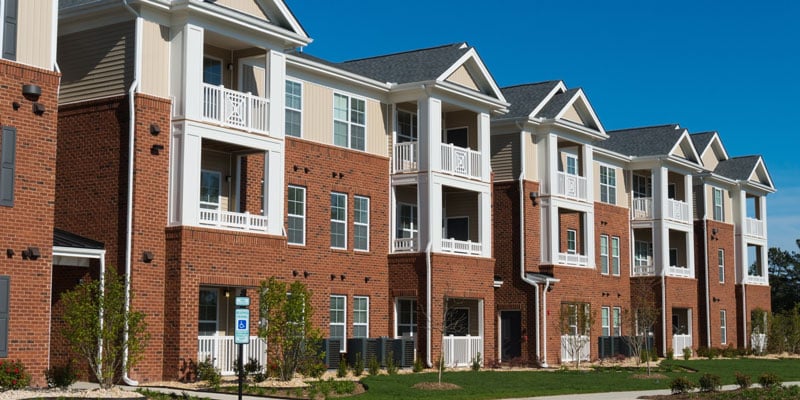If you're newer at buying apartments, there are quite a few things to navigate. This article will help provide a clear, and concise, education on what it takes to get a loan to buy an apartment. Note that this is sequential in nature, meaning one has to happen before the other to get an apartment financed<
Understand why you are buying an apartment first
You might be thinking, why is this important to understand why I am buying. It matters a lot because your reason will drive your focal point. For example, if my purpose for buying is purely to derive x amount in cash flow, then that is the focus when looking at an asset. If all you care about is price appreciation, then this should drive you to certain markets. Make sure you spend the allotted time to determine “why” you are buying this property. This decision will make a world of difference in the market you will focus on. Chances are that if you are a cash flow borrower, then you will be in less popular markets, where there is less competition. Competition breeds higher prices, which means less cash flow.
Understand how generate cash flow
There are a few things that matter most in buying an apartment; at least from the lender’s perspective. First off is understanding how to underwrite a property. When a lender looks a property, here is how they will underwrite a property.
- Take the gross rents and deduct a vacancy factor. Most lenders will take about a five percent amount.
- Take the gross rents minus the operating expense of the property. A good rule of thumb is about $2,500 to $3,200 per door per year. Another way to gauge if the property is realistic on its expenses, consider 45 to 50% expense ratios. There are a lot of expenses that go into operating an apartment.If someone says it is 30%, then it better be a brand spanking new property.
- Once you take the gross rents and deduct the operating expenses, you then have a net operating income. This is what hits the bottom line…kind of.
- The final way you underwrite will be to take out some reserves.Most lenders will take about $250 per unit, per year. These are the turn costs of re renting a property.Honestly it costs a lot more, but they are dollar cost averaging; in a sense. This will give you a final net cash flow that is ready to see how much you can borrow.
Understand how to size up a good deal
There are good deals, which are few, and there are bad deals, which are many. This section will educate you on what to look for when looking for good deals:
- Condition: Look at the roof, air conditioning units, floors and plumbing. These are going to be really expensive things for you, so if they are old, then get your checkbook out.
- Master vs. Individual Metered: Individually metered properties are ideal, because the tenant pays for the power.If you have a master metered property, then you will be the one paying for utilities…lenders don’t like master metered.
- Unit mix: Are the unit’s studios, 1/1s, 2/1’s, 3/1’s? There is not necessarily one better, but larger units can be a big plus.
- Location: You here this all the time, but you can change a property, but you can’t change the location.If you are in a rough neighborhood, that will make it tough to get a good loan.
- Books/records: Did the seller keep good books and records, or not.This again is not a deal killer, but can make it tough to get a loan at times.
Understand what makes a loan a yes
Lenders have a yes, and no, button, so lets try to find out what those are. Lenders look first to cash flow and their magic number is debt service coverage ratio. A debt service coverage ratio is nothing more than taking the net cash flow of the property and dividing it by the annual debt payment. Please click here to find out how to calculate the debt service coverage ratio.
Furthermore, the lender is going to want to look at your personal financial situation:
- Outside income: Will you have any outside income, in case some things don’t go well with the property?
- Cash position: How much cash will you have once you buy the property? They like to see about 5 to 6 months post closing for payments.
- Credit: Lenders want to make sure you have not had a bankruptcy, foreclosure, short sale, etc in the last 7 to 8 years.
- Proximity: How close are you to the property? The closer you live to the property the better.If you are out of state, that might be challenging.
Remember there is a lot to buying an apartment, so don’t do it alone. Feel free to contact David Kotter at 480-219-1205.
